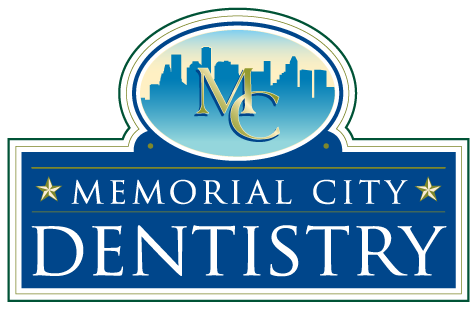Experiencing tooth pain can be both frustrating and alarming. It’s a signal from your body that something’s not quite right, and understanding the cause is crucial for relief.
Whether it’s a sharp ache or a dull throb, your teeth might be trying to tell you something important.
From cavities and gum disease to sensitivity caused by temperature changes, various factors can lead to discomfort. Ignoring that pain can lead to more serious issues down the line, so it’s essential to get to the root of the problem.
In this article, we’ll explore the common reasons behind tooth pain and what steps you can take to address it effectively.
Why Do My Teeth Hurt?
Tooth pain can arise from both dental and non-dental sources. Identifying the specific cause is crucial for effective treatment and relief.
Dental Causes
Tooth Decay
Tooth decay represents a primary reason for toothache. This condition occurs when acids produced by plaque bacteria erode your tooth enamel, leading to mineral loss.
Untreated decay can penetrate deeper layers, causing pain in the dentin and pulp of your tooth.
Gum Disease
Gum disease contributes to tooth pain by exposing tooth roots. When gums recede, they create gaps that leave roots susceptible to bacteria, resulting in sensitivity and discomfort.
Early intervention can prevent further degradation and pain.
Bruxism
Bruxism, characterized by teeth grinding, often leads to tooth pain due to excessive pressure. This condition can damage crowns and fillings, erode tooth enamel, and elevate the risk of further decay or infection.
Common triggers include stress, anxiety, and misaligned teeth.
Damaged Teeth
A cracked or broken tooth can cause sharp and significant pain. Damage can result from various factors, such as trauma or excessive force during chewing, leading to increased sensitivity and discomfort.
Understanding these causes helps in addressing tooth pain effectively. Prompt consultation with a dental professional is essential for an accurate diagnosis and appropriate treatment.
Common Causes of Tooth Pain
Tooth pain often signifies underlying issues that require attention. Common causes include dental issues, external factors, and medical conditions that can contribute to discomfort.
Dental Issues
Tooth decay represents a leading cause of tooth pain. Bacteria consume sugars and carbohydrates, releasing acids that erode enamel and minerals, leading to cavities. Untreated cavities expose nerves, resulting in significant pain and risk of infections or abscesses.
An abscessed tooth occurs when an infection reaches the root tip. This condition often stems from untreated cavities, dental trauma, or other compromised treatments. Symptoms include severe pain, swollen gums, and potential bone loss around the tooth.
Gum disease, such as gingivitis and periodontitis, also leads to tooth pain. Gingivitis, if untreated, can progress to periodontitis, causing permanent damage like bone loss and gum recession.
External Factors
External factors may contribute to tooth pain as well. Sensitivity to extreme temperatures, such as hot or cold beverages, can indicate worn enamel or exposed nerves.
Grinding teeth, or bruxism, can cause substantial wear and tear, resulting in discomfort and sensitivity. Additionally, trauma from sports or accidents can lead to cracked teeth, causing immediate pain.
Medical Conditions
Some medical conditions can also manifest as tooth pain. Sinus infections may create pressure in the upper jaw, mimicking dental pain.
Systemic conditions like diabetes can affect gum health, increasing the risk of infections. Furthermore, heart conditions sometimes produce referred pain, impacting the mouth as well as other areas.
Recognizing these causes helps you address tooth pain effectively and seek appropriate dental care when necessary.
Symptoms to Watch For
Cavities and Tooth Decay
- Sharp or dull pain may arise, especially when consuming hot, cold, sweet, or sour foods and drinks. Tooth sensitivity often indicates that enamel has worn away, exposing sensitive areas of the tooth.
Gum Disease
- Bleeding gums can signal gum disease, often accompanied by bad breath. Mouth sores and the presence of pus around your teeth also indicate underlying issues that require attention.
Toothache
- Pain when biting down can suggest a cracked or broken tooth. If you experience sensitivity to hot, cold, sweet, or sour items, it could mean the inner layers of the tooth are exposed, causing discomfort.
When to See a Dentist
You should see a dentist if tooth pain persists for more than a few days. Extended discomfort may indicate a more serious condition requiring professional evaluation.
Schedule a visit if you experience sharp pain while biting down, as this may signal a cracked or broken tooth.
You should seek immediate care if you notice swelling in your gums or the face. Swelling could indicate an abscessed tooth, which may require urgent treatment.
Additionally, if you experience bleeding gums, especially during brushing or flossing, contact your dentist. This could be a sign of gum disease needing prompt attention.
You should also consult a dentist if sensitivity to hot or cold stimuli becomes severe. Increased sensitivity may suggest that the inner layers of your tooth are exposed or that you have a cavity.
Furthermore, persistent bad breath or an unusual taste in your mouth could indicate an underlying dental issue requiring further investigation.
You shouldn’t ignore any signs of pain after dental procedures. Discomfort following treatments like fillings or extractions should subside within a few days.
If pain worsens or shows no signs of improvement, contact your dentist promptly. Early intervention can prevent complications.
Prevention Tips
- Maintain Good Oral Hygiene: Brush your teeth at least twice a day with fluoride toothpaste and floss daily to remove plaque and prevent cavities.
- Visit the Dentist Regularly: Schedule dental check-ups every six months for professional cleanings and early detection of issues.
- Eat a Balanced Diet: Consume a diet rich in fruits, vegetables, and whole grains, while limiting sugary snacks and beverages that contribute to tooth decay.
- Avoid Tobacco Products: Steer clear of tobacco usage, as it increases the risk of gum disease and tooth decay.
- Wear a Mouthguard: If you grind your teeth at night or participate in contact sports, wear a mouthguard to protect your teeth from damage.
- Limit Acidic Foods and Drinks: Reduce consumption of acidic substances like soda and citrus fruits, which can erode enamel and lead to sensitivity.
- Stay Hydrated: Drink plenty of water throughout the day to help wash away food particles and bacteria.
- Use Desensitizing Toothpaste: If you experience tooth sensitivity, consider using toothpaste designed specifically for sensitive teeth.
- Address Issues Promptly: If you notice any signs of tooth decay, gum disease, or pain, consult your dentist as soon as possible to prevent worsening conditions.
Conclusion
Tooth pain shouldn’t be ignored. It’s your body’s way of signaling that something’s amiss. Whether it stems from cavities, gum disease, or other factors, addressing it early can save you from more severe issues down the line.
By staying vigilant about your oral health and maintaining good hygiene practices, you can significantly reduce your risk of discomfort. Regular dental visits are essential for catching problems before they escalate.
If you experience persistent pain or any alarming symptoms, don’t hesitate to seek professional help. Your smile deserves the best care.
Frequently Asked Questions
What are common causes of tooth pain?
Tooth pain can arise from several issues. The most common causes include tooth decay, gum disease, tooth sensitivity, bruxism (teeth grinding), and damaged teeth. External factors like temperature changes and trauma can also contribute to discomfort. Medical conditions such as sinus infections or diabetes may manifest as tooth pain, highlighting the need for a thorough evaluation by a dental professional.
When should I see a dentist for tooth pain?
You should consult a dentist if tooth pain lasts more than a few days, increases in severity, or is sharp while biting down. Other warning signs include swelling in the gums or face, bleeding gums, and severe sensitivity to hot or cold temperatures. Prompt attention can prevent more serious complications.
Can tooth pain signal something serious?
Yes, tooth pain can be a signal of serious dental issues such as cavities, gum disease, or an abscessed tooth. Conditions like cracked or broken teeth may also lead to severe pain. It’s crucial to address tooth pain promptly to avoid further health complications.
How can I relieve tooth pain at home?
While waiting for a dental appointment, over-the-counter pain relievers can help manage tooth pain. You may also rinse your mouth with warm salt water or apply a cold compress externally to reduce swelling. However, these are temporary solutions and seeing a dentist is essential for proper treatment.
What are some preventive measures for tooth pain?
To prevent tooth pain, maintain good oral hygiene by brushing twice daily with fluoride toothpaste and flossing regularly. Schedule dental check-ups every six months for cleanings and early detection of issues. A balanced diet, hydration, and avoiding tobacco also promote oral health.
Memorial City Dentistry: Get to the Root of Your Tooth Pain with Expert Care
If you’re struggling with tooth pain, Memorial City Dentistry is here to provide fast, effective solutions. Our experienced team is dedicated to diagnosing and treating the root cause of your discomfort.
Don’t wait until the pain worsens! Contact us today to book an appointment and regain your comfort and confidence. Relief is just a call away—act now!


